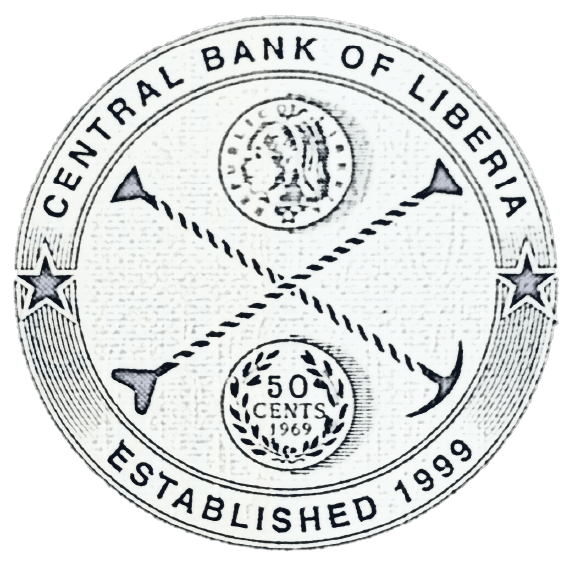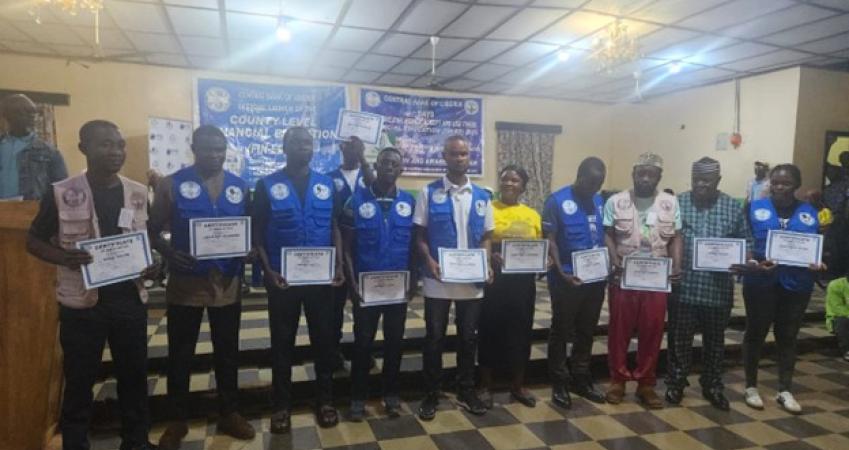
KAKATA, Margibi County – In the bustling hall of Kakata City Hall, where over a thousand residents gathered on Saturday, August 9, the loudest message was clear: Financial empowerment starts with us, so let’s learn how to manage our money.
Thirteen newly trained community mobilizers from Margibi County are taking the lead in rolling out the Central Bank of Liberia’s Financial Education (FinEd) program in their own communities. These mobilizers include market leaders, youth representatives, women’s advocates, motorcyclists, and members of the disability community. They are determined to transform the way people think about and handle money.
For them, the two-day training before the launch was more than just a workshop; it was a turning point and an opportunity to unlearn bad financial practices.
“I’ll be going in my community to make sure that my people learn how to save so their financial future is safe,” said Christiane Sajery, one of the female mobilizers, with a determined smile.
Josephine Wongba, a member of the Village Saving and Loan Association (VSLA), echoed the same conviction. “It’s good to save and budget before spending. Even when people are not making much, they need to put something aside.”
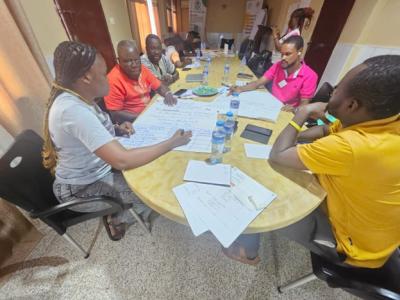
For Joe Moses Kpaklah, who represents people living with disabilities, the training spoke directly to the struggles of those earning small incomes. “I am going to teach my colleagues how to budget, live within our means, and plan for the future.”
From the Liberia Marketing Association, Danicious Dennis, the county inspector, saw the potential for widespread impact. “There are people who don’t have any financial education, so now we will educate them on the importance of saving and budgeting.”
The mobilizers’ enthusiasm is shared by many in Margibi County. Market leaders, rural women, and youth groups pledged to carry the financial literacy message into marketplaces, villages, churches, and schools.
Local Leaders Back Community-Driven Approach
Launching the program on behalf of the county administration, Togea Samu Zarwea, County Administrative Officer, praised the initiative as “a pathway to financial independence and self-sufficiency for Margibians”.
“Financial literacy equips individuals with the knowledge and skills to make informed decisions, achieve their economic goals, and contribute positively to the county and the nation,” Zarwe said, adding that the program will especially empower women and girls.
John M. Kollie, secretary of the Liberia Marketing Association, said the market community is grateful to the CBL for the program. “We thank the Central Bank for adding to our knowledge, and we tell God thank you for them,” Kollie said.
Margibi County’s rural women’s leader, Madam Esther J.S. Clarke called on women to embrace the program to acquire new skills that will improve their businesses and help them care for their families.
Why Locals Are the Heart of FinEd
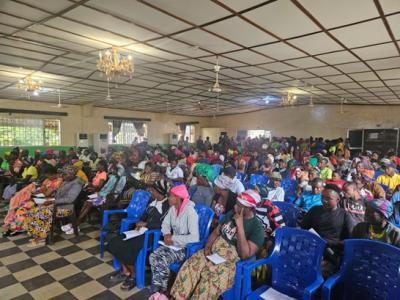
For the Central Bank of Liberia, training people from the county to lead the campaign is a deliberate effort to achieve financial inclusion. Cllr. P. Alphonsus Zeon, CBL Communications Director and chair of the Financial Education working group, explained:
“We do not take people from Monrovia to come teach you how to manage your money. We trained people from the county, people who speak your dialect, know your culture, and understand your needs so that they can bring the message about financial education directly to you.”
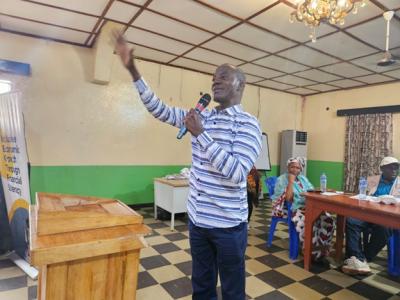
For many residents, especially in marginalized communities, this approach makes financial education more accessible and relatable. Roman S. Massaquoi, a youth coordinator from the Christian Association of the Blind, shared how members with visual impairments have been cheated by people they trusted to save their money. “Now, we will learn how to save in the bank ourselves,” he said.
FinEd Gains Traction Across Liberia
The National Financial Education program is part of the Liberian government’s broader financial inclusion strategy, led by the Central Bank of Liberia in collaboration with the Female Journalist Association of Liberia and the Office of the Arts and Culture Ambassador.
The program uses county-level launches, drama, cultural performances, and interactive lectures to promote financial education in communities. The program covers nine thematic areas, emphasizing the importance of saving, budgeting, and informed financial decision-making.
The Margibi County’s launch marks the fifth in a growing list of county-level rollouts, following Grand Gedeh, Lofa, Nimba, and Bong counties. By placing trained locals at the helm, the CBL hopes to ensure that financial literacy becomes not just a campaign, but a lasting community movement.
As Christiane Sajery put it, “This is not just training. It’s the beginning of something that will forever change how our people think about how they can manage their money.”
